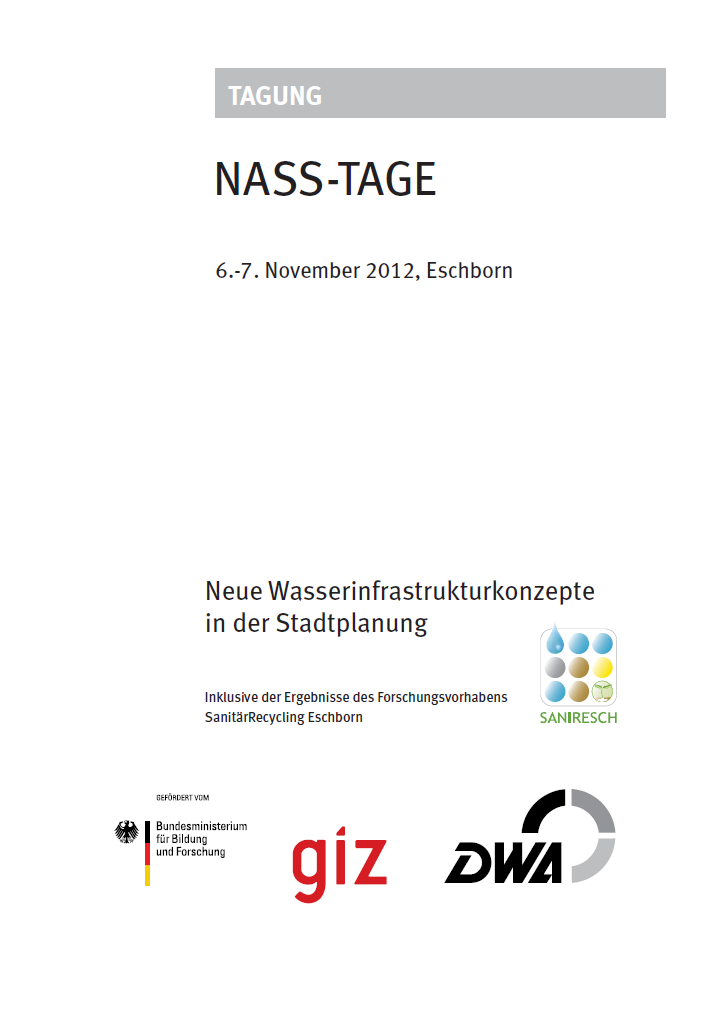NASS-Tage within SANIRESCH Project Various Authors (2012)
A conference in cooperation between DWA and BMBF with the title "New water infrastructure concepts for urban planning" took place at the headquarters of the GIZ in Eschborn from 6 to 7 November, 2012. The conference language was German.
The first day of the conference the results of the SANIRESCH project were presented. The second day was devoted to sessions regarding "Integration of alternative sustainable sanitation system in urban planning", "Operator concepts" and "Alternative sustainable sanitation systems – contribution to energy transition and climate protection".
In addition to the sessions mentioned above there were opportunities for discussions and interactions between participants and referents as well as guided tours through the SANIRESCH project.
Bibliographic information
Various Authors (2012). NASS-Tage within SANIRESCH Project
Filter / Tags
UrinePresentationsGerman
Downloads
Conference proceedings
Type: application/pdf
Size: 2.42 MB
DWA-A 272 – new process sheet about the implementation of alternative sanitation systems
Type: application/pdf
Size: 1.21 MB
Economics of decentralisation - economic feasibility analysis using the example of KREIS and its analysis potential
Type: application/pdf
Size: 0.38 MB
Energy generation in greywater recycling through pre-connected heat recovery
Type: application/pdf
Size: 2.55 MB
Future prospects and perspectives for NASS
Type: application/pdf
Size: 1.29 MB
Hamburg Wasser and the Hamburg Water Cycle in the Jenfelder Au
Type: application/pdf
Size: 1.65 MB
Integration in urban planning - what means NASS for the city of the future
Type: application/pdf
Size: 5.67 MB
Material flow accounting of different wastewater systems - hotspots of CO2 and energy
Type: application/pdf
Size: 1.06 MB
Operational concept of the decentralised vacuum sewer project Sneek in the Netherlands
Type: application/pdf
Size: 1.04 MB
Potential contribution of NASS products for fertiliser usage and their impact on greenhouse gas emissions in different countries
Type: application/pdf
Size: 0.96 MB
Welcoming speech by the DWA, expert panel on alternative sanitation systems (NASS)
Type: application/pdf
Size: 0.26 MB
Welcoming speech by the German Federal Ministry of Education and Research (BMBF)
Type: application/pdf
Size: 1 MB
Which NASS are particular promising for Germany
Type: application/pdf
Size: 3.51 MB

